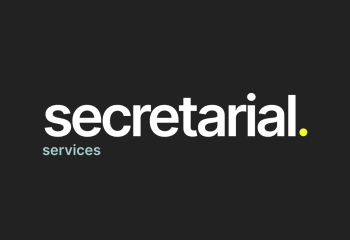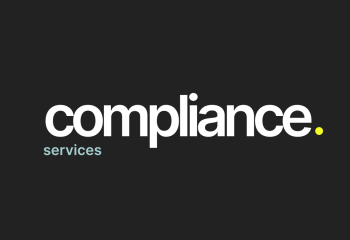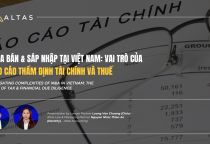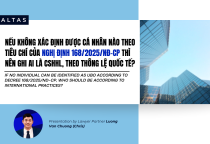LEGAL UPDATE: VIETNAM AIMS TOWARDS GLOBAL FINANCIAL CENTER STATUS: WHAT DO BUSINESSES NEED TO KNOW ABOUT THE IFC RESOLUTION?
Views: 1199
(5).png)
In the context of global capital flows constantly shifting and increasingly fierce competition among financial centers in the region, Vietnam is taking an ambitious strategic step. With the National Assembly officially issuing the Resolution on the International Financial Center (IFC), effective from September 1, 2025, a new playground with breakthrough regulations is about to open in Ho Chi Minh City and Da Nang. With a structure of 6 Chapters, 35 Articles, this is not only a legal document, but also a strong affirmation of Vietnam's determination to create a dynamic, internationally competitive financial center.
1. A new playground with its own rules
The Resolution creates a specific, almost autonomous legal space, separate from general regulations to ensure flexibility and competition. The highlight is a specialized and modern governance structure, including:
-
The executive body is responsible for directly managing and operating all activities at IFC.
-
A specialized supervisory agency responsible for inspection, supervision and handling of violations to ensure compliance with international standards, together with
-
International Arbitration Center for the settlement of commercial disputes. Notably, the Executive Body has the authority to issue its own Operating Regulations, and these regulations will take precedence in resolving issues arising within its scope.
One of the revolutionary provisions is the priority of applying the Resolution and guiding documents. Evidence of this can be mentioned as follows:
-
Allow the application of the provisions of this Resolution in case of differences with other laws.
-
Allows the parties to have the right agreement to choose to apply foreign law to transactions in which at least one party is a foreign organization or individual, as long as the consequences of the application do not contravene the basic principles of Vietnamese law.
-
English is the official language of IFC transactions and operations, providing maximum convenience to the international financial community.
2. Outstanding privileges for investors
The Resolution provides a series of outstanding incentives to attract large capital flows and high-quality human resources, creating an investment environment that is almost immune to conventional barriers.
Regarding tax policy, this is considered the most powerful “lever” with the following regulations:
-
Apply corporate income tax rate for new investment projects in priority development industries and professions of only 10% for 30 years; accompanied by a tax exemption policy of up to 04 years and a 50% reduction in tax payable for the next 09 years.
-
Apply a tax rate of 15% to projects not in priority sectors for 15 years along with other attractive exemptions and reductions. prescribed in point b, Clause 1, Article 19.
-
Completely exempt personal income tax from salaries and wages until the end of 2030 for individuals, managers, experts, and scientists (both Vietnamese and foreigners) working at IFC.
-
Income from the transfer of capital contributions to IFC members also enjoys similar tax exemption.
Besides taxes, land and labor barriers are also thoroughly removed thanks to the following policies:
-
Land allocation or land lease with a maximum term of up to 70 years, and 50 years for other fields for projects in priority areas.
-
Allow foreign invested enterprises mortgage land use rights at foreign credit institutions to borrow investment capital.
-
Work permit exemption for foreigners working at IFC if they meet professional standards and can be granted a visa (symbol UD1) or long-term temporary residence card up to 10 years with family members (symbol UD2).
In addition, foreign investors enjoy unprecedented benefits. They can establish economic organizations at IFC without do not need to have an investment project and do not have to carry out procedures for granting an Investment Registration Certificate (IRC). At the same time, they also do not have to carry out registration procedures when contributing capital or purchasing shares of IFC Members, except in the banking sector.
3. Open up capital flows and promote innovation
To make IFC truly a financial trading center, the Resolution has built mechanisms to facilitate capital flows and encourage new financial products, demonstrated through policies such as:
-
Foreign currency loans from foreign countries of members are not counted in the country's foreign debt, helping businesses here access international capital more easily.
-
Allow foreign investors to freely transferring capital and profits abroad in foreign currency through accounts opened at IFC is considered a key factor to ensure liquidity and trust of foreign investors.
-
Allows the establishment of exchanges and trading platforms for products such as carbon credits, commodities and commodity derivatives, cultural and artistic products, precious metals, and green finance.
One A controlled testing mechanism (sandbox) for the financial technology (Fintech) and innovation sector will be implemented with open policies:
-
Allows companies to experiment with innovative products, services, and business models that are not yet regulated by current law, in a tightly controlled yet flexible environment.
-
Allow test participants to exemption from administrative and civil liability to the State if causing damage due to objective reasons and in compliance with proper procedures.
4. Flexible and safe dispute resolution mechanism
One of the biggest concerns of international investors is legal risks and disputes. The Resolution has thoroughly resolved this issue by introducing a diverse dispute resolution mechanism, approaching international standards but inheriting and promoting the advantages of domestic dispute resolution mechanisms such as:
-
The parties may use the methods of Vietnamese law, at foreign arbitration, international arbitration, foreign courts, or at IFC's own International Arbitration Center.
-
The parties may written agreement to waive the right to request the Court to set aside the arbitration award of the International Arbitration Center of IFC. Then the Court will not resolve the request to set aside the award, creating a final effective “lock” mechanism, bringing maximum certainty and peace of mind to the parties involved in international transactions.
5. In Conclusion: Preparing for a New Era
The Resolution on the International Financial Center is not simply a set of preferential policies, but a declaration of a new way of thinking about law: open, competitive and ready for integration. This is a golden opportunity for domestic and foreign businesses and investors to participate in a vibrant, transparent and efficient financial ecosystem right in Vietnam. Carefully studying these groundbreaking regulations and proactively building appropriate strategies right now will be the key for businesses to not only survive but also make a strong breakthrough in the new financial era that is approaching very soon.
How ALTAS Can Assist You:
ALTAS LAW is uniquely positioned to assist your business in navigating these complex administrative reforms. We offer a comprehensive suite of legal and business services designed to provide seamless support during this transition period:
-
Accounting and Tax Services: We also offer accounting and tax services to help your business manage the financial implications, including tax planning, tax settlement, tax auditing and tax refund.
-
Licensing & Regulatory Compliance: We will meticulously review your existing licenses and permits, advise on necessary amendments or renewals, and guide you through the process of obtaining any new approvals. Our team will also ensure your compliance with all relevant regulatory changes.
Please feel free to reach us via email contact@altas.vn to discuss your specific concerns and explore how we can navigate these reforms successfully.
--
Written by: Mr. Le Quan Lam – Partner Lawyer at ALTAS Law & Mr. Vu Nguyen Duc Huy – Partner Lawyer at ALTAS Law
Date: 07/07/2025














(5).png)


![[LEGAL UPDATE] WHAT TECHNOLOGY SHOULD BE DEPLOYED BY NOTARY OFFICES FOR FULFILMENT OF PERSONAL DATA PROTECTION OBLIGATIONS? [LEGAL UPDATE] WHAT TECHNOLOGY SHOULD BE DEPLOYED BY NOTARY OFFICES FOR FULFILMENT OF PERSONAL DATA PROTECTION OBLIGATIONS?](thumbs/210x144x1/upload/news/legal-update-j-jan2025-2-5840.png)

![[LEGAL UPDATE] KEY HIGHLIGHTS OF THE NEW LAW ON NOTARIZATION 2024 [LEGAL UPDATE] KEY HIGHLIGHTS OF THE NEW LAW ON NOTARIZATION 2024](thumbs/210x144x1/upload/news/legal-update-j-jan2025-6-9279.png)
![[LEGAL UPDATE] ELECTRONIC IDENTIFICATION FOR FOREIGNERS WITHOUT TEMPORARY RESIDENCE CARDS IN VIETNAM [LEGAL UPDATE] ELECTRONIC IDENTIFICATION FOR FOREIGNERS WITHOUT TEMPORARY RESIDENCE CARDS IN VIETNAM](thumbs/210x144x1/upload/news/legal-update-j-jan2025-5-5270.png)
![[LEGAL UPDATE] TRANSITIONING TAX IDENTIFICATION NUMBERS TO PERSONAL IDENTIFICATION NUMBERS FROM JULY 1, 2025: ROADMAP AND PRACTICAL NOTES [LEGAL UPDATE] TRANSITIONING TAX IDENTIFICATION NUMBERS TO PERSONAL IDENTIFICATION NUMBERS FROM JULY 1, 2025: ROADMAP AND PRACTICAL NOTES](thumbs/210x144x1/upload/news/legal-update-j-jan2025-3-6884.png)
![[LEGAL UPDATE] CIRCULAR 03/2025/TT-NHNN - A NEW LEGAL FRAMEWORK FOR INDIRECT INVESTMENT ACCOUNT [LEGAL UPDATE] CIRCULAR 03/2025/TT-NHNN - A NEW LEGAL FRAMEWORK FOR INDIRECT INVESTMENT ACCOUNT](thumbs/210x144x1/upload/news/legal-update-j-jan2025-2-2494.png)







